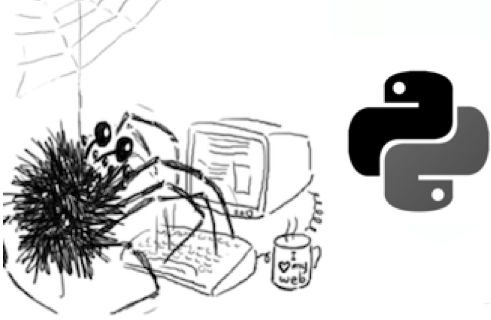Web Scraping with Python
Projects >> Web Scraping with Python

Following a Boston Python Project Night event that I attended (where my group focused on web scraping techniques), I wanted to try out some web scraping on my own with Python.
Web scraping is a technique used to extract data from websites through an automated process.
Dataset
A good site for web scraping that was recommended to me at the event is College Sailing’s Techscore. It is the home for real-time results of College Sailing regattas and includes scores and participation records for all fleet-racing and team-racing events within ICSA. An archive of all previous seasons is also available, so it offers a fair amount of subpage links to traverse. I don’t know much about college sailing but set out to dig more into this data.
After inspecting the site layout through Chrome’s developer tools, I recognized that this website has a pretty consistent table structure throughout which made scraping data from it easier. There are links to each regatta held during different seasons which contain a score summary in order of how each school placed. This is also separated into A & B divisions in many cases. The format for team scoring regattas deviated a bit from the other scoring formats (# Divisions, Combined, Singlehanded) so I wrote code to skip over these types. I also could have only parsed regatta scoring records where status is ‘official’ but didn’t worry about it for this exploratory project.
Tips and Tricks Guide
I used this post from Hacker Noon as a guide for this excerise. The article offers good insights on common design patterns as well as pitfalls and rules related to web scraping. It also presents several use cases and a collection of typical problems, such as how not to be detected, dos and don’ts, and how to speed up (parallelization) your scraper.
Python Libraries
BeautifulSoup is a library that allows you to parse HTML source code in a beautiful way.
Along with this I used the popular Requests library to fetch the content of the urls.
There are other Python libraries designed to scrape different kinds of web pages. This excellent tutorial explains how to use Selenium and PhantomJS to scrape dynamic pages (Ajax loaded content), iframes, get specific HTML elements, how to handle cookies, and much more stuff.
Improving Speed with Parallelization
The initial runtime of my program to scrape regatta scores from each event dating back to 2010 was 0:06:19.282466. Per the guide I referenced, I wanted to try and see if I could cut this down by sending requests in parallel using a multiprocessing package.
By sending requests in parallel I was able to reduce the runtime of my program to 0:01:46.565286 – about a 24% improvement in speed.
Next Steps
No API is available for this site, so I would like to create one using the data that I scraped.
About Me
I'm a data leader working to advance data-driven cultures by wrangling disparate data sources and empowering end users to uncover key insights that tell a bigger story. LEARN MORE >>
comments powered by Disqus